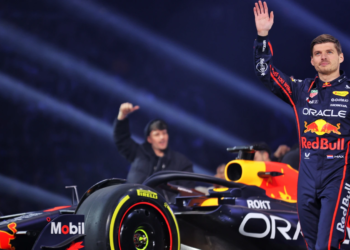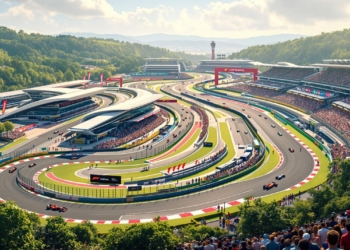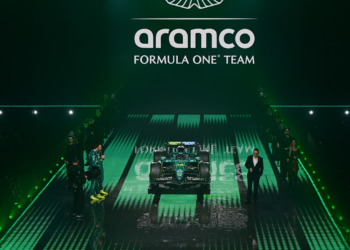Mercedes believe that it’s “doubly important” that the team builds a “good” Formula 1 car next year because large parts of its W15 will be carried over into 2025 as well.
The German marque elected to abandon its ‘zeropod’ concept from last year with the introduction of an upgraded car with revised bodywork at the Monaco Grand Prix in May.
However, Mercedes remains winless so far this year, having continued to be stymied by the architecture of its launch-spec package.
After landing a second shy of pole position in Japan, Lewis Hamilton stated Mercedes needs “the greatest six months of development” to battle Red Bull in 2024.
Mercedes Technical Director James Allison insists ensuring it has a solid baseline from the outset in 2024 will also be pivotal for its competitive state the following year.
Allison highlights how the 2025 cars will share similarities to next year’s creations due to the pending regulation overhaul for 2026 requiring teams to shift resources early.
Asked to provide an update on the progress of Mercedes’ 2024 car in Qatar last weekend, Allison said: “It will be a different car for one thing. So, I won’t be working with this one.
“But he’s [Hamilton] correct in two senses. It’s a new season, it’s important that we get off the new season on the front foot.”
He added: “But more than averagely so, because with 2026 bearing down on us, a car that will need to be engineered in 2025, it’s highly likely that the 2025 cars can be close cousins of the 2024 cars. So doubly important to get the 2024 car good.”

Hamilton has repeatedly expressed that he hopes Mercedes’ engineers listen to his input as he bids to return to F1 title contention.
Both Hamilton and team-mate George Russell were pictured attending meetings at Mercedes’ Brackley base in between the Japanese and Qatar Grands Prix.
Allison admits that receiving feedback from the pair away from the “fractious environment” of a race weekend is extremely useful for rectifying its current problems.
Pressed on whether there had been a fundamental shift regarding the drivers’ involvement in recent months, Alisson replied: “Fundamental… would overstate it.
“At the race weekends you get your greatest access to the drivers because you’re with each other for many hours.
“But it’s also a very fractious environment to interact, because the pressure of doing well at the circuit means that it’s just slightly less objective than if you’re doing it back at home.
“And the drivers have been good enough to put aside time for us in the slightly cooler environment of home. And that has proved useful, it’s proved helpful for ranking the problems they have, for seeing the opportunities and just making sure that the things that we are working on are well aligned with what they’re describing.”









